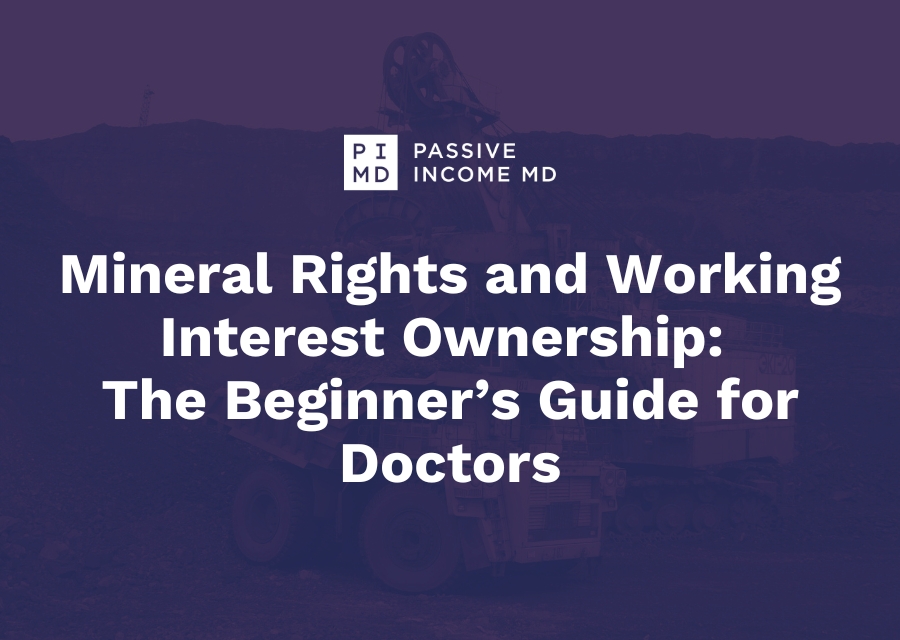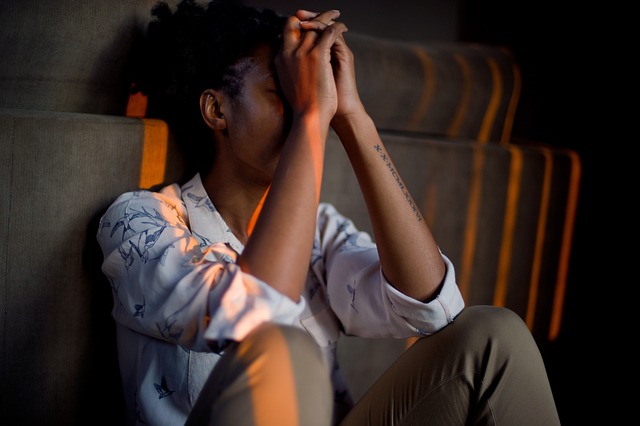Throughout my years of suffering, I was like most people and reached out to others to help me overcome my anxiety and fear. I read books, talked with professionals, wasted numerous amounts of money on different approaches and techniques,...
Throughout my years of suffering, I was like most people and reached out to others to help me overcome my anxiety and fear. I read books, talked with professionals, wasted numerous amounts of money on different approaches and techniques, and yet I was no nearer gaining my freedom, in fact, I would say I was getting worse.
It was at this point I decided to ditch all conventional help and find my own answers. This journey was a long road of success and failure, one though that ultimately led me to being free and finally able to discover my former self.
Although there were many factors to me finally overcoming anxiety and fear, below are the main discoveries that helped me the most. Not only towards my recovery from anxiety but also having far more peace and happiness in my life going forward.
Understanding Anxiety
Understanding my condition was vitally important to my recovery. Initially, I had no interest in understanding why I felt the way I did. All I wanted was for someone or something to fix me and make it all go away.
Eventually, after years of struggling and searching, I hit a brick wall with it all and got nowhere. I was left defeated, exhausted and just resigned myself to feeling this way forever.
It was in this moment of utter defeat that I suddenly said to myself ĎIím done, there isnít a damn thing I can do about this, I would honestly rather feel this way than spend the rest of my days fighting ití.
As I said this, I suddenly felt this huge sense of relief. After so many years of struggling something inside had just given up and all my resistance fell away. Although my anxiety was still there and although my mind was still busy, there was suddenly this sense of peace around it all.
The next sentence that came to me was ĎWhat if I didnít try to feel any different than I do, what would happen then?í.
I then realised that I had failed because all these approaches had been around trying to rid myself of anxiety. Rather than get to the root of the problem and understand why I felt the way I did and the underlying causes,†I had gone to war with myself.
Upon seeing this, I could now see why I was so mentally and emotionally exhausted, why I was trapped in my own head, why I was never present to life, why I felt so flat, irritable and depressed. I saw on a deep level that I was the one creating the majority of my suffering by constantly trying to escape it.
Yet I falsely thought that if I didnít constantly try to do something about it, then it would never go away. Not realising that my continued suffering had been telling me that I was on the wrong path.
It was no different than trying to heal a broken leg by going for a run in an attempt to fix it and then wondering why it was getting worse.
This is where my approach changed and so instead of trying to suppress, get rid, or avoid my suffering, I began to surrender to it all.
Instead of looking for others or some technique to fix me, I started to look deeper into what I had seen and started asking my own questions.†I wanted to understand what was creating and sustaining my anxiety, rather than spend all my time trying to manage or get rid of it.
The more I understood and the clearer things became, the more I was able to let go of all the previous behaviours that were causing me so much suffering. As my knowledge grew, I was able to change a lot of my old beliefs and conditioning and finally open the door to healing.
Understanding fear and its limits
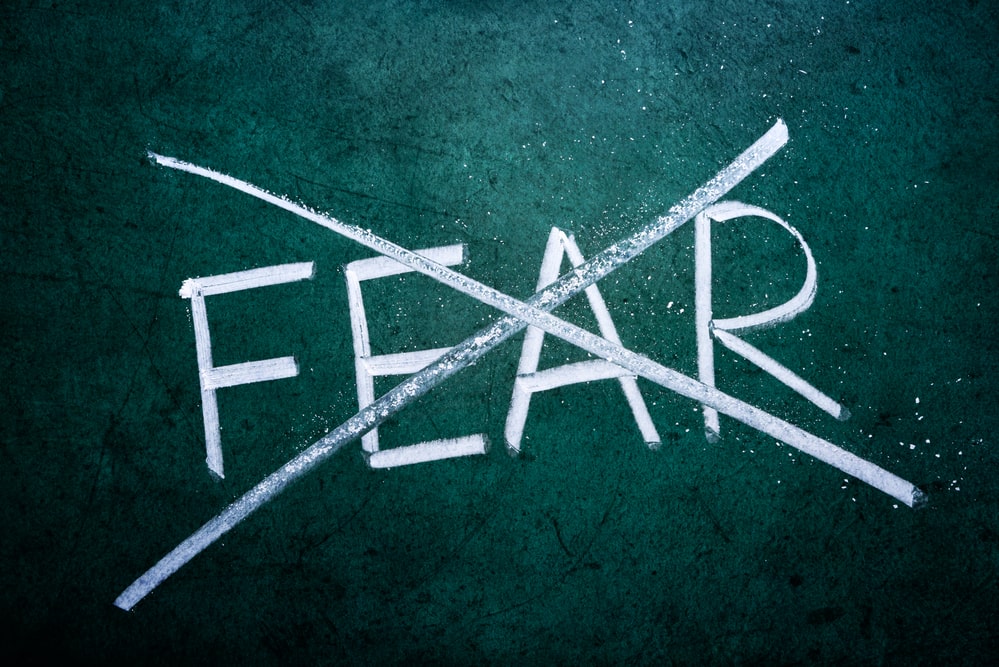
The number one question I get asked is ďHow can I be free of fear?Ē
Well, we can clear this up straight away, you canítÖÖ
Fear is a reaction hard wired into every human and animal alive, it is there to protect us from immediate threats to our survival. It is what the mind is designed to do.
No matter what book you read, what retreat you go on, how enlightened you became, you can not switch off this reaction. What you can do is lessen its influence over your life, where fear only occurs when necessary.
When I suffered from anxiety, fear pretty much controlled my life. I would do anything to avoid it and would try to escape any situation that brought it on. Eventually, I realised that trying to avoid or escape fear was counterproductive and knew that the only way to be free of its influence was to truly understand it.
When I started to look at fear as an inbuilt system within us all I came to the conclusion that whoever or whatever created us meant no harm, that although fear felt uncomfortable it was just another emotion.
I then started to look at it differently, I would observe its presence rather than follow the usual instinct to escape it. I would let go of all my defences and just let it be there and allow it to run its course.
As I got to know fear better through the process of allowing its presence I saw that it had its limits, that it would arrive, peak and then die down and it was not the big deal I made it out to be.
The more I allowed its presence and the less I feared it, the less influence it had over me. Again I would not say I enjoyed its presence but I certainly wasnít scared of it anymore, I could now see its harmless nature.
I recently watched a documentary on the SAS and one of the soldiers was asked how he overcame the fear that arose in dangerous situations and he said: ďI didnít see it as anything spectacular, I just saw it as another emotion, I embraced itĒ.
This is exactly the stage I got to. When you really get to understand and see through fear you realise how ordinary it actually is.
You become free of fear when you lose your fear of it when you begin to see it as a normal reaction within.†The less you fear it, the more you are able to retrain your mind that your survival is not under threat in normal circumstances and so it begins to turn the reaction down.
It can take time, understanding and a little practice to gain this attitude of fearlessness towards fear but it is the best way to be free of its influence and move on and live the life you want to live.
Living my life regardless of how I was feeling

Although I had built up a huge amount of knowledge around my anxiety and suffering, deep down I knew that knowledge would only take me so far. I understood that if I wanted to feel comfortable again, I had to go through a process of feeling uncomfortable.
This meant I had to go back out there and live the life I had lived before and take any anxiety along with me. I had no longer allow it to control what I did and didnít do. This wouldnít always be easy and would take a good degree of courage at times but I knew it was something I had to do if I wanted my life back.
When I first tried to recover with all this extra knowledge of my condition, I would feel like I had failed if I still felt anxious. I would put myself in a situation I had previously avoided and if it didnít go well I would go home all disappointed and falsely believe that I should no longer feel this way.
The biggest switch in attitude for me was the realisation that every time I felt fear or anxiety by going outside of my old comfort zones, it didnít mean that anything was wrong or I that had failed. It meant that I was growing in that area and getting nearer to regaining my life.
Most people fail in this area because they want to skip the part where they feel uncomfortable. They want to find a certain piece of knowledge or technique that bypasses any discomfort.
Unfortunately, this discomfort is a vital part of recovery as the mind will always be fearful when doing something new.††So, to grow in any area you have to put yourself back out there until the mind gets comfortable with a situation once again.
Knowledge can help give you the courage and understanding towards taking that first step but it canít bypass this part of the process, only experience can. This does not mean you have to put yourself in every situation straight away, it can be gradual. As long as you know that each time you do so, then you are a step closer to getting your life back.
Realising the outside wasnít the cause of my anxiety and fear

When I first suffered I would feel anxious in numerous settings, be it driving, the supermarket, or social situations.
At first, I falsely thought that if I felt anxious in a particular setting or situation then it meant there was danger there and so I needed to escape. Yet, all that happened with this approach is that my life was just getting narrower and narrower. I was teaching my mind that there was danger in everyday living.
To overcome this problem and regain my life then I had to do what I normally did and that was to look deeply into what was happening and ask myself some questions. The conclusion I came to was that it was not these places causing my anxiety, they were just triggering what was already within me.
I would observe others in the supermarket and realise there wasnít a single thing to be concerned about. I wasnít following reality by wanting to escape, I was following a false reaction in my mind and the anxious energy within me that it triggered.
I concluded that the more I retreated from these places, the more my mind would see them as a danger going forward. Through my action of escaping my mind was registering this information and storing it. So in triggering this reaction, it was trying to keep me safe and doing what it was designed to do.
The trouble is, it didnít know the difference between a real threat and a false one, the only information it could go on was my past behaviour. On seeing this, I knew that it was now my job to teach the mind that I was absolutely fine through changing my actions.
So many believe that if the mind produces fear in a certain situation, then that situation is a genuine threat. It isnít and it is your job to teach it so, not by retreating but by no longer retreating and by no longer avoiding as these behaviours only serve to reinforce it.
So my approach was twofold, I started to allow my mind to react with fear as it normally would without following my usual instinct to escape (as strong as the urge to do so was).
I would silently say to it ĎThanks for doing your job and trying to keep me safe but I am absolutely fine here, you will learn in timeí. This just helped give me that separation from the reaction in my mind, rather than being controlled by it.
Secondly, when it triggered all this anxious energy within me, I would just allow it to flow through me (as uncomfortable as it was). Again if I wanted to be free of this energy, I knew I had to consciously allow it.
I now started to see the supermarket and other situations I had struggled with as a positive. A situation that was triggering what I needed to be free of, a place I could retrain my mind, a place where I could grow.
Can you see when you approach things differently and really understand what is going on, how it changes how you react and approach things, how it changes your whole attitude to the same situation? This is why understanding your condition and what is going on is so important.
Indulging in new hobbies and interests
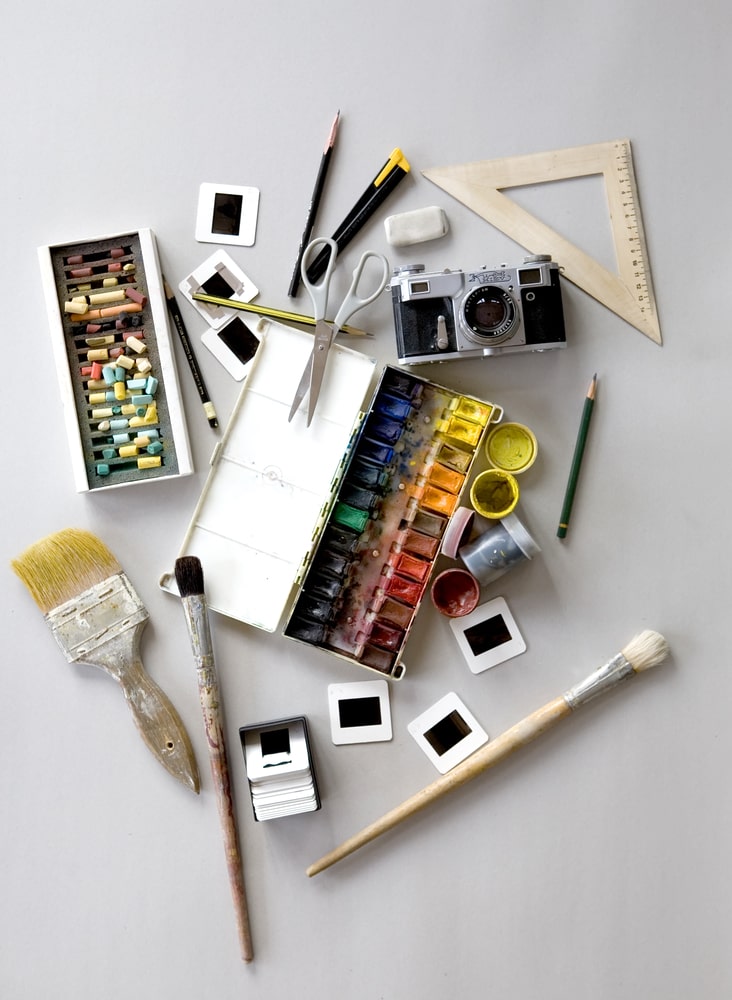
This was also really important on the road to recovery. I had thought about the subject of anxiety so much that I could no longer think of anything else. I would spend hours in my head trying to escape and make sense of how I felt.
Yet, this constant introspection only served to feed the subject back into my subconscious, keeping it at the forefront of my mind.
I then realised if I wanted to engage with life once again I had to drop this obsession that wasnít serving me in any way.
Initially, to overcome this problem, I tried not to think of the subject of anxiety. Unfortunately, this then became like the ĎDonít think of the pink Elephantí which only ended up having the opposite effect.
I then realised that it wasnít me that was purposely thinking of the subject of me and my anxiety, it was the habit in my brain that I had created, one I couldnít instantly switch off.
So to break this habit I had to allow the subject to come up if it wished without engaging with it, without being drawn into trying to solve it.
I knew I had to start adding new things into my day so that my mind was engaged in other subjects so it had other things to think about.
The more my focus was outward, the less inward I became. The more I started to engage in things outside of myself, the more the subject started to fall away naturally and no longer dominate my thinking space.
No longer living in my head trying to solve myself
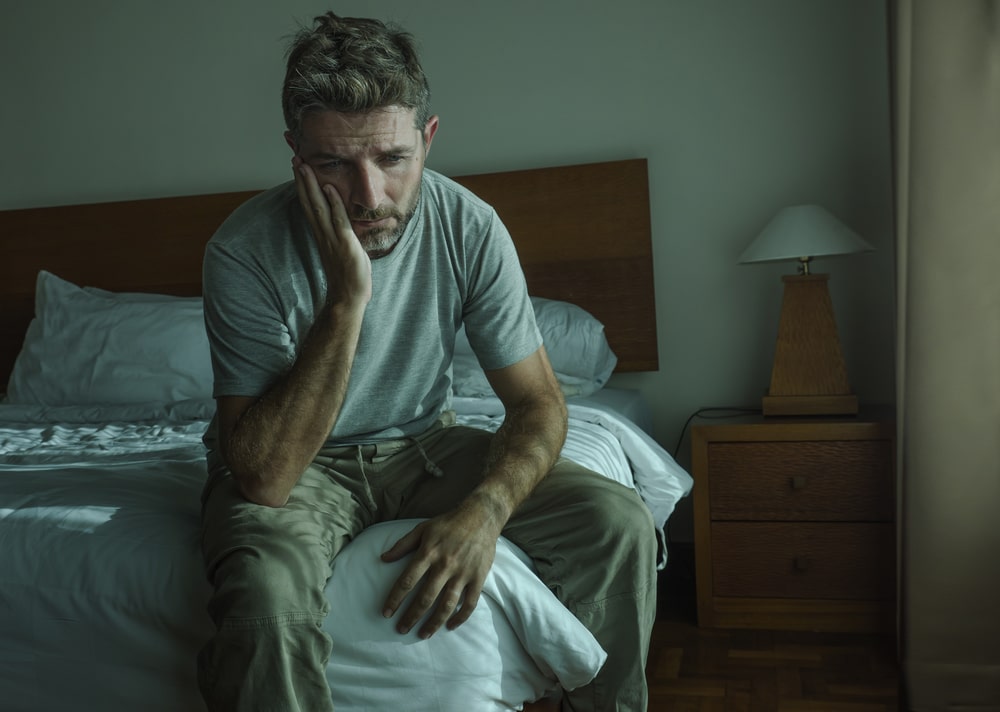
This really follows on from the above and so I will go into more detail as it played such a crucial role in my recovery.
I would say that 70% of my suffering came through an obsessive need to solve myself.
It led to me being mentally and emotionally exhausted, it led to me being disconnected from life and others, it led to my mind being constantly busy. It led to me being hyperaware of myself, my thoughts and actions, it led to me feeling emotionally flat and depressed, it had a detrimental effect on my mental health and many other forms of suffering.
The trouble was, the worse I felt through indulging in this constant introspection, the more I would do it and so I would end up feeling even worse. It was a terrible cycle until I saw the loop I was in.
When I ceased trying to solve myself through obsessive thinking I saved a huge amount of brain energy.†So my mind became much calmer and clearer, my concentration got better, I started to feel more connected to others and my surroundings and my moods and general mental health really started to improve.
Everything I was looking for when I was trying to solve myself actually came when I stopped doing so.
There is nothing wrong with gaining more knowledge on suffering but trying to solve yourself through obsessive thinking and introspection, is the most destructive thing you can do.
Allowing myself to feel the moods and emotions I had been suppressing

This approach came at the very beginning of my recovery and was the cornerstone to not only being free of anxiety but also feeling much better going forward.
When we feel certain negative moods or states of mind our instinct is to attempt to change them, suppress them, or distract ourselves from them instead of allowing their presence.
Although the instruction to allow seems easy enough, the actual practice can be very difficult.
The main reason for this is that people donít want to feel uncomfortable emotions. So in an effort not to, they may drink too much, eat too much, take drugs, keep busy, watch too much TV, isolate themselves, buy material things they donít need, avoid relationships, social events, or anything else that may trigger these uncomfortable feelings.
These rituals and behaviours are all built around trying to either suppress, avoid or distract themselves from how they are feeling. Anyone who has done any of the above will realise that although these approaches may give you some short-lived relief, they never go anywhere towards solving the problem.
The truth is you can never be free of what you refuse to feel, there is no getting around this fact. These emotions are not coming up to punish you, they are coming up to free themselves from your inner space. Yet most wonít allow them to and so they just end up either avoiding them or pushing them back down, is it any wonder they keep coming back?
This is the reason you are not free of them and not because you havenít found the right technique yet. These feelings want to be free of you just as much as you want to be free of them, this is why they reveal themselves. Your job is to consciously allow them, not to fight, suppress or avoid them.
I remember feeling really excited while at the same time deflated on seeing this for myself. I now had hope that I could be free but also knew it was not going to be pleasant and would take time.
To be free of all the excess anxiety and fear within me, I had to stop trying to change or escape it, but be willing to consciously experience it.
It was the same if I felt really down, irritable or detached, I had to stop fighting these negative moods and allow myself to feel them fully without trying to change or escape them.
If my mind was racing, bringing back old painful memories or I was in any kind of psychological pain, I had to allow it fully without trying to control it in any way.
There have been many teaching over the years about allowing, surrendering, letting go but people really donít understand what it means. Many try to allow/surrender as another way to feel better, missing the point altogether. If you are using it as another approach to feel good or get rid of anything, then you will fail.
Some may also try and perfect allowing or spend all their time trying to allow and let go, turning it into yet another technique.
But allowing is not something you do, it is something that happens when you stop doing. It is when you drop all your rituals, strategies and techniques in an attempt to control and manipulate how you are feeling.
It means no longer trying to distract yourself and finally allowing yourself to face and experience all those uncomfortable emotions that you have been avoiding and suppressing for so long.
It is your understanding and attitude towards this approach that makes all the difference, it is about how open you are, it is not measured on how good you feel. As when you initially open up these emotions may come thick and fast but see this as a positive, not a negative. The more you allow, the freer you become and the better you start to feel.
I saw it as a detox, something I needed to do to finally be free of what was causing me so much suffering. It was a clearing out of my emotional space, a release of all the anxious energy I had built up over time and my mind going back to its natural state once I stopped trying to control it.
What you have to remember here is when you fight and struggle with moods and emotions, when you say they should not be there. When you go to war with your mind and fight back against the inevitable, you only end up fighting with yourself, leading to more pain and suffering.
I saw on a very deep level that the pain and suffering I was feeling was at that moment was inevitable in the circumstances. I had so much I needed to heal from, so much self-created suffering. Me fighting it, getting angry with it and demanding that it shouldnít be there did absolutely nothing but keep me in the very suffering I was trying to escape from.
Allowing myself to experience these emotions and negative states of mind did initially make me feel vulnerable and exposed and there was a huge temptation towards once again looking for temporary relief. Yet, rather than react to this drive and fall back into old habits of distraction and suppression, I allowed this feeling of vulnerability too.
The best pointer I came across was from a Buddhist teacher who stated ĎIf you love someone unconditionally, it means you accept them exactly the way they are. Well if you want to be free and have less suffering in your life, do the same with your negative emotions and states of mind because if you go to war with them, you will be at war with them foreverĒ.
Self Care, looking after myself mentally and physically
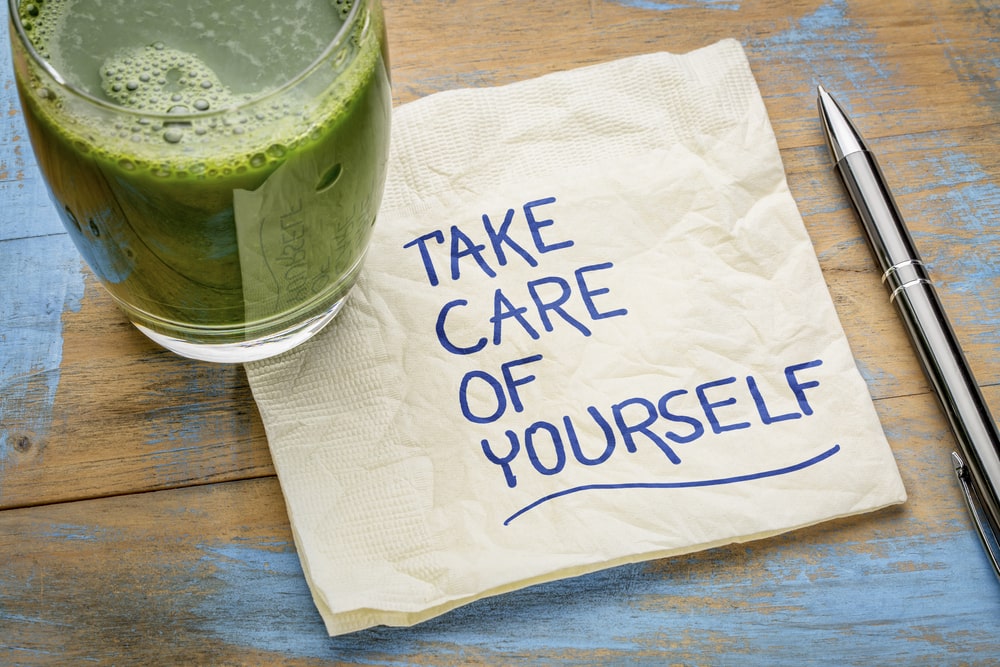
Looking after myself was also important.
When we feel anxious or down we tend to no longer care about ourselves the way we once did. We may start to eat junk food, no longer exercise, turn to alcohol, spend too much time watching TV, or be glued to our phones.
This is mainly because we either donít have the energy to motivate ourselves, turn to junk food or alcohol to find some temporary enjoyment and overindulge in technology to distract ourselves from how we are feeling.
Unfortunately, these behaviours can lead to us feeling even worse, lessen our self-esteem, promote negative self-talk and so we end up in a cycle of continuing them.
Anxiety or not, the body and mind run much better when we look after them. So it is vital to look after both through the process of eating well, exercise, engaging in things that you enjoy and taking time to relax and allow the mind to do nothing.
Again I understand this is not easy and at times when we donít feel great. I sometimes had to drag myself to do things and needed a lot of willpower to eat well, exercise and look after myself.
But overall it helped me to feel much better mentally and physically, it raised my self-esteem and allowed me to take action in other areas of my life so I no longer sat at home brooding about the way I felt.
What I eventually found is that the better I started to feel, the less willpower I needed. In fact, I didnít need any at all because it now came natural to want to look after myself.
Another important factor was simplifying my life.
As I started to feel better I had this huge urge to simplify my life. I didnít want to go back to my old lifestyle of chasing temporary highs, money, or getting drunk, none of that seemed important anymore. I also found no joy at all being surrounded by people who were constantly complaining or calling others.
I knew that I needed a new path and so made numerous changes in my life, ones that made me happy and brought more peace to my life. I also let go of certain people and connected more with others who shared my new interests and views on life.
Being open to others about how I was feeling

When I first suffered from anxiety I would keep things to myself and tell everybody I was fine. I would put masks on in public and play a certain character to get through the day.
I kept quiet for a few reasons, one being, if you were a man then you were seen as weak if you suffered and anxiety wasnít really something you discussed with male friends.
I also didnít want to worry people close to me, like my parents and really close friends. I think part of me also thought if I do talk about it, then itís real, if I keep denying it, then it doesnít exist and will go away.
Eventually, I hit a threshold where my suffering became too much. It was at this point I knew I needed to talk, I wasnít strong enough to do this on my own. I was tired of putting on fake personas that everything was fine and couldnít put on this painted smile any longer.
When I first started to confide in people about how I felt, I feared they would ridicule me but I ended up being pleasantly surprised by how supportive and understanding people were.
All I said was ĎYou donít have to understand, just believe me and if I ever look down, appear unsociable or turn down an invite, it has nothing to do with you, Iím just not in a great place at the momentí.
The relief gained through no longer having to wear a mask was huge. I could now go out if I wished without feeling the need to put on an act, which in itself was far less exhausting.
I then went to speak with a woman at my local hospital who dealt with anxiety and other issues. This lady was brilliant for me, not so much in solving my anxiety issues, but in me being able to offload everything that I had been keeping inside.
Being able to finally talk, share ideas and let go of all that I had been bottling up inside was a huge help.
Understanding the mind far better and how thoughts, beliefs and perceptions are not always reality
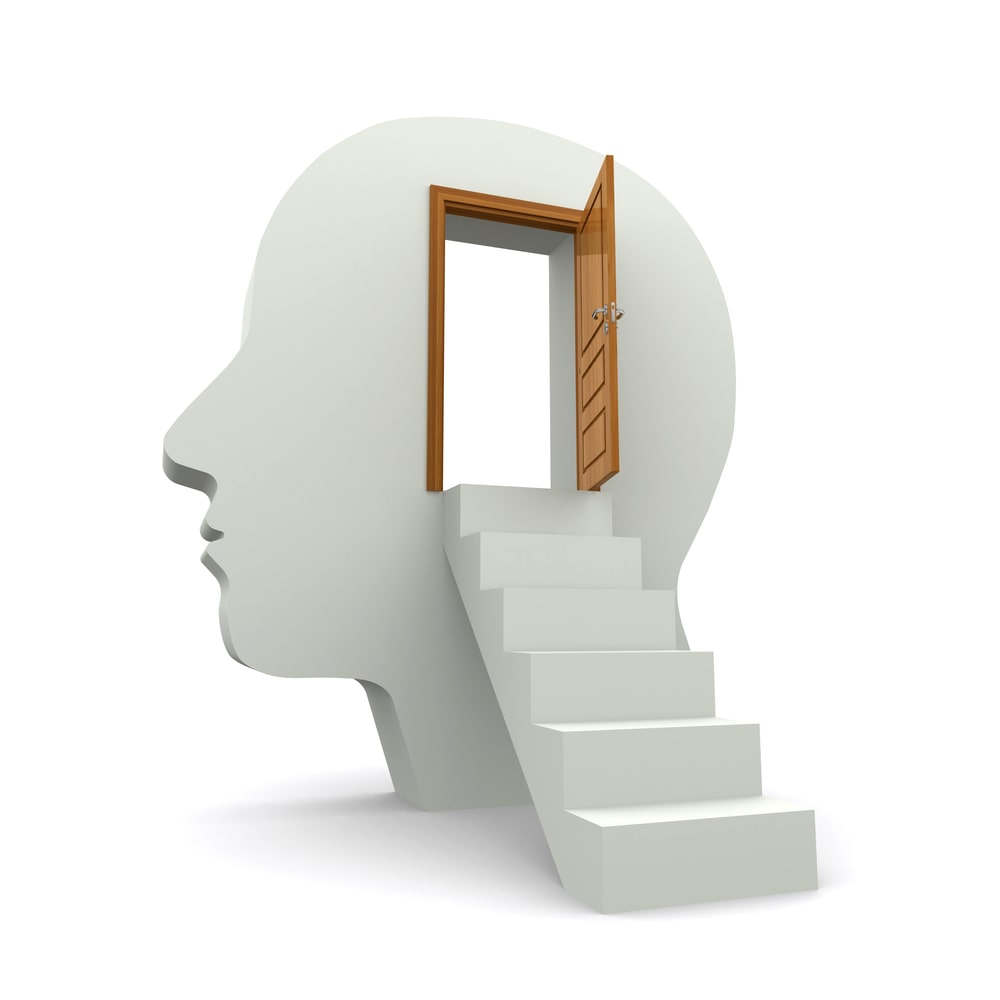
Being able to see that thoughts are not reality and that the mind generates thoughts, not me, was huge in my recovery.
It was when I turned to Buddhist and spiritual teachings that these realisations really started to sink in. I will admit though, that this was also the hardest concept to grasp as we spend all our lives being addicted to the mindís thoughts and identifying with them as the truth.
When you truly understand the mind then you no longer take the thoughts it produces seriously. The majority of peopleís dramas, the way they think about themselves and the cause of most of their worries comes from believing the thoughts their mind generates.
If you observe the mindís thoughts then it becomes obvious that most of the thoughts it generates are repetitive and come from your past experiences and current belief system.
The way to be free of negative or intrusive thoughts is not to attempt to change them, shut them up, or get angry with them.
The way to be free of them is to pull your interest and identification from them. A particular thought is never a problem, it is just some random noise the mind produces. The problem only appears when you believe a thought, support it, and fully identify with it as the truth.
You may have thoughts about not being good enough or unworthy of love. When in reality we are all the same and have exactly the same value. If you see this thought as the lie that it is and donít engage or identify with it, then it will just pass on through without any influence.
If on the other hand you take this thought seriously and fully identify with it, it may lead to you trying to please others for validation, it may lead you to believe you donít deserve love or that if you find a partner they will soon leave.
It can lead to you being socially awkward around others or even angry and confrontational as a means to protect your fragile sense of self. Believing and supporting this one thought can have a real detrimental effect on your life, behaviour and self-esteem.
Thoughts are not reality
Someone who suffers from health anxiety is not someone who visits the doctor numerous times a year due to something being truly wrong.
They do so because they believe the thoughts in their mind repeating that there is something wrong and the doctor must have missed something. The problem is not in their health but in the belief of an intrusive thought and the only reason these thoughts persist is because of the faith they put in them.
Constantly revisiting the surgery or ringing the doctor wonít cure them of their health anxiety, it only reinforces it. The only way for them to be free is to let go of identifying with their thoughts, to see them as false and no longer acting upon them.
Curing my social anxiety was pretty much all down to no longer believing the thoughts I had about myself. Seeing clearly that I wasnít this negative image that my mind had created about me, lead me to feel comfortable in my own skin once again.
The end of most of the worry and drama in my life came through no longer identifying with my negative thinking.
People who worry a lot are not usually people who have numerous issues to solve, they are mainly people who take each worrying thought the mind produces seriously.
I often come across people who spend all their time worrying about things that havenít even happened. The mind just produced a thought that it may do and off they go in full agreement with it, spending the next 2 hours trying to create solutions to a problem that doesnít even exist.
I used to call these my worry storms and would just leave the mind to go over things without my engagement until it ran out of its own steam. Once it did, the made-up scenario would just disappear, as the problem was not in reality but in my mind.
The more you identify with these negative thoughts, the more the mind produces them. The less you identify with them, the less the mind produces them. When we clear ourselves of these intrusive thoughts through a complete lack of identification/interest, then a new fresh form of thought comes in, rather than the old conditioned pattern of thinking.
You can call this type of thinking, intuition, wisdom, or inner guidance.
This type of clear thinking is far more useful, as it is not conditioned. It holds more truth and doesnít have that negative or punishing quality to it. Everyone has had access to this type of thinking when the mind is quiet and the negative thoughts cease.
Do you find that you have far fewer problems when you are in a good state of mind and the opposite is true when you are in a bad state of mind, do you also find that your perception of life and others is totally different depending on your mood? When in reality nothing outside of you has changed, just your thoughts.
This is why it is key to no longer take your negative thoughts seriously, just see it as some bad weather passing over.
Remember that you are not your thoughts, you are the one observing them, so they canít be you. Any negative thoughts you have about yourself do not tell you the truth of who or what you are. Negative thoughts donít tell you the truth about any situation. Only your belief in them can obscure this obvious fact and create unnecessary suffering.
Refusing to give up and accept this was me forever
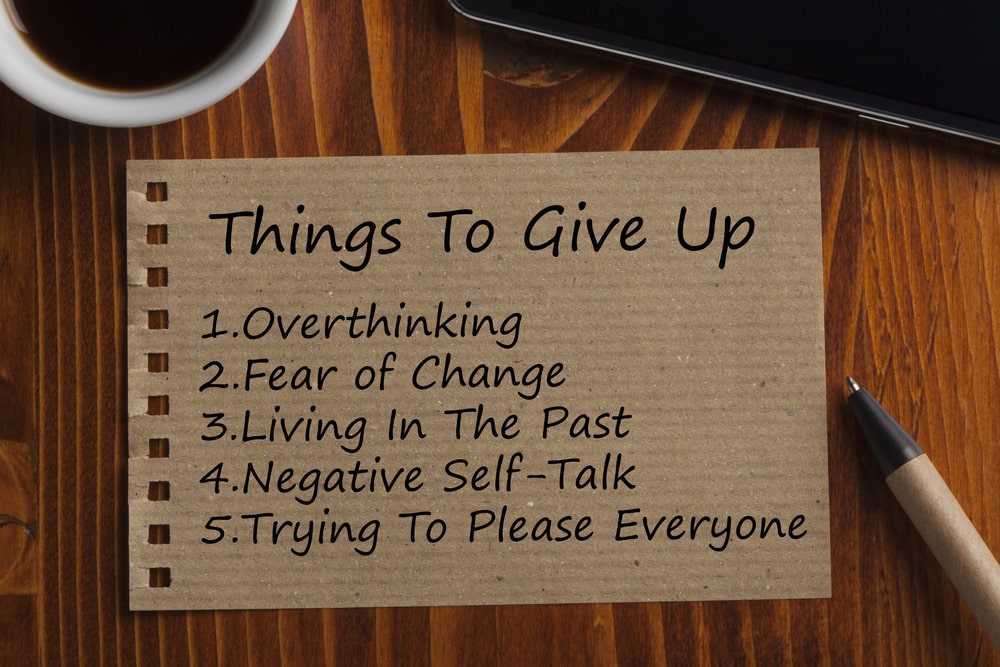
So many people want to find that instant cure for their suffering. They donít want to do the inner work that is required or put themselves in uncomfortable situations that will help them grow. We all want someone else or some technique to take away our suffering but the only person who can truly do this is you.
The ones who make the most progress are the ones who refuse to give up and are committed to making a real change. The ones who realise that there is no quick fix (no matter what some promise), that there will be challenges ahead and that real change takes time.
I remember a lady telling me that she had been through a very bad marriage and that after her divorce she was very bitter and angry. She then went on to join certain groups and forums where other people had similar experiences.
She explained how at first she had found them helpful in sharing her experience with other angry and bitter people until she realised that she had turned into a very angry and bitter person in her everyday life.
She then decided she no longer wanted to be this person, she wanted to put her past behind her and start seeing the good in people again. She did not want one bad experience to tarnish her life going forward. She said that carrying it around only hurt her, not the person she was angry at.
So she deleted her account and joined some spiritual groups, ones that promoted positivity and caring. She explained that over time this anger and bitterness began to leave her and that the people she now surrounded herself with was the person she was now becoming.
This a very good example of someone taking responsibility for themselves, letting go of blame and making the changes needed.
Change comes from us
We all need people to guide us, to help us understand our suffering but at the end of the day only we can make the changes necessary.
We are the only person who can feel the emotions we need to feel, the ones who have to put ourselves in uncomfortable situations that will help us grow. The only ones who can do the inner work needed to change our old beliefs and perspectives. The only ones who can look after ourselves mentally and physically. The only ones who can decide to let go of our past and create a better future.
I am forever telling people, that I can only point people in the right direction, the rest has to come from them. I canít walk their path for them to create the changes needed. You can build up all the knowledge in the world but if you donít act on this knowledge then nothing will change.
Even when I was free of anxiety and able to live freely again, I wasnít happy with this, I knew there was still some work to do as anxiety had robbed me in so many other areas of my life.
I wanted to be free of my insecurities, heal more of my old wounds, improve socially, be more comfortable in my own skin and find myself again.
All the guidance I came across was really helpful but this was something I had to do, if I looked for someone else to do it for me, I would have failed. I had to walk my own path and become my own teacher because no one knew me as I did and no one could do it for me.
When I did recover I realised that my suffering was never there to punish me, it was there to force me to make the changes needed.
If I was continuing to struggle and suffer, then I knew I had not yet seen what I needed to see. If I found some relief in some area then I knew that I was on the right track, if not, my suffering would tell me, as it did time and time again.
So if fighting my anxiety was creating more anxiety, I knew that I was on the wrong path.
If worrying made me feel worse then I needed to find a way to lessen this through a new perspective.
If my negative thoughts were causing me so much anguish then I needed to learn to no longer identify with them.
If trying to solve my anxiety through obsessive thinking was creating more suffering, then I knew I needed to let this go.
If suppressing my emotions didnít lead to freedom then I had to learn to allow their presence.
Change is never instant and certain realisations can take a while to really sink in and why it is vital to stick at it and give yourself the time that is needed.
Suffering is no more than an inner alarm call to change, to gain a new perspective, it is not something to try and rid yourself of. Nobody wakes up one day and suffers, there is always a reason.†If you ignore the message your suffering is trying to present to you, then it will keep coming back.
For some, it may be a simple message to slow down and take care of themselves better. Others may need to do some inner work so they are able to create new beliefs and a different perspective. Some may need help towards letting go of their past or guidance in releasing their suppressed emotions. We all have different areas we need to work on and different areas that require growth.
But no matter where you currently find yourself with the right guidance and understanding you can make huge progress and become the person we know is still there behind any form of suffering. We all have the power to do this, the real you is always waiting there to be discovered.
True progress comes when you understand why you suffer and are able to make the changes necessary, this should always be your goal. The goal should never be about trying to fight, manage or control how you feel.
The same would apply if you had a bad stomach from eating rotten food. The solution would not be to fight, control or manage the pain in your stomach. The solution would be to stop eating the rotten food.
If your leg hurts from too much exercise, the solution would not be to go to war with your pain and try and get rid of it, the solution would be to cease doing what is causing the pain and rest it.
As you can see in each case, your suffering was necessary to let you know there was a problem in that area, the suffering is actually there to help you make the changes needed. When you do the suffering will cease and then a process of healing can take place.
I look back and see that my suffering was a huge blessing in disguise. It helped me to improve in so many areas of my life. It helped me to see what changes I needed to make. It helped me become the person I am now and for that I thank it.
If you look at the overriding message within this guide, it all leads to you doing less, not more. Towards letting go of the battle you are having with yourself and understanding why you suffer so you make the changes needed.
Knowledge should not lead you into a lifetime of practices and techniques, it should lead you to letting go of them all. It should lead you back to your authentic, natural self, one that is free to engage with life once again.
This guide reveals the main things that helped me to recover, if you would like to learn more and see the above explanations in far more detail then you will find them in both my best selling books, entitled ĎAt last a lifeĎ and ĎAt last a life and beyondĎ
I wish you well in your recovery






